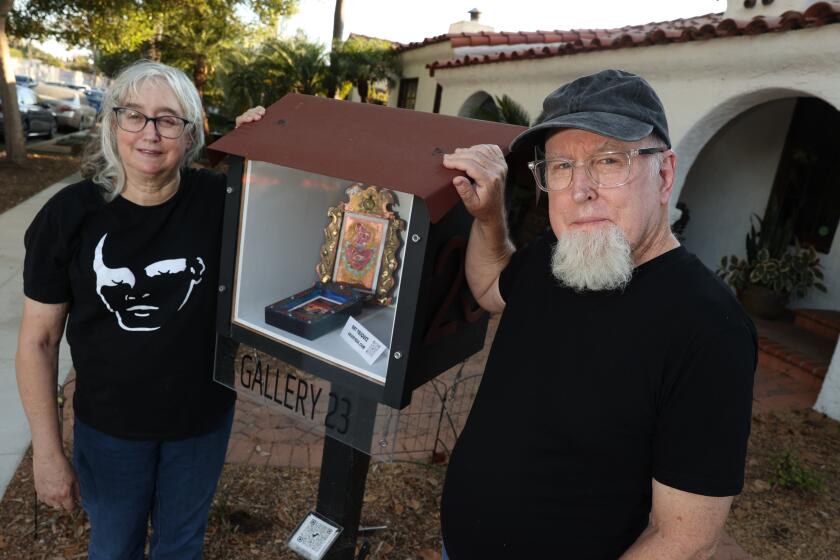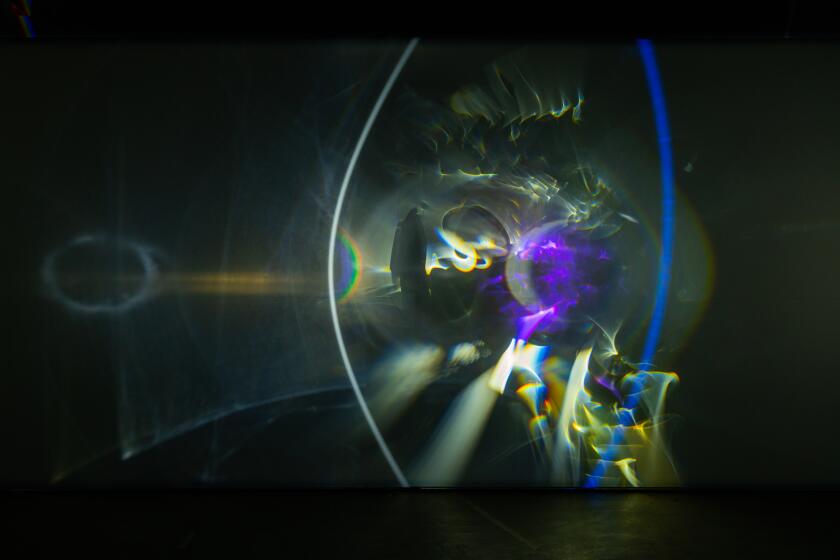Eschenbach at his best in Mahler
Some conductors are formalists. Some are colorists. Christoph Eschenbach, music director of the Philadelphia Orchestra and the Orchestre de Paris, combined the two traits when he led the Los Angeles Philharmonic in a three-part program Thursday night at Walt Disney Concert Hall.
For two-thirds of the evening, though, one wanted more from him. But he delivered emotionally where it counted most.
He opened the concert with an objective performance of Mozart’s “Prague” Symphony and closed it with a sound-drenched reading of Schumann’s Symphony No. 4 in D minor.
All the more remarkable, then, that in between he led a poignant account of Mahler’s “Kindertotenlieder” (Songs on the Death of Children). Of course, his soloist, bass-baritone Thomas Quasthoff, could never be party to a merely formal approach. And fortunately, the two here were equally committed to expressive values.
Eschenbach’s “Prague” had the virtues of clarity, balance and energy. By taking all the repeats, the conductor revealed the work’s formal construction. But he seemed to find little warmth, affection, charm, wit or pleasure in the music. It was rather dry and detached.
His Schumann was muscular and massive. He encouraged the orchestra often -- perhaps too often -- to play at full strength. At those times, he proved a master of balancing all its parts. One could admire the sheer sound of the Philharmonic, its capacity for broad swathes of color and its embodiment of the surging, tidal pull of the music. But what the pull was about, what emotional connections all this sound and color were supposed to point to, never emerged.
Mahler’s “Kindertotenlieder” is a setting of five of the hundreds of verses that 19th century German poet Friedrich Ruckert wrote after the deaths of his two children. Quasthoff sang them with personal connection and exemplary technique. He used his strong, pliant voice to color the texts and express their range of emotions.
Eschenbach, for his part -- in contrast to his earlier stance of distance from the music -- accompanied with great sensitivity. So much so that at the end of the long postlude of the final song, in which the composer depicts the poet’s vision of his children surviving somewhere beyond the storms of life, the audience sat hushed and breathless.
Minutes seemed to go by before anyone felt capable of applauding. Then, the acclamations began.
*
Los Angeles Philharmonic
Where: Walt Disney Concert Hall, 111 S. Grand Ave., L.A.
When: 8 p.m. today
Price: $15 to $125
Contact: (323) 850-2000 or www.laphil.com
More to Read
The biggest entertainment stories
Get our big stories about Hollywood, film, television, music, arts, culture and more right in your inbox as soon as they publish.
You may occasionally receive promotional content from the Los Angeles Times.









